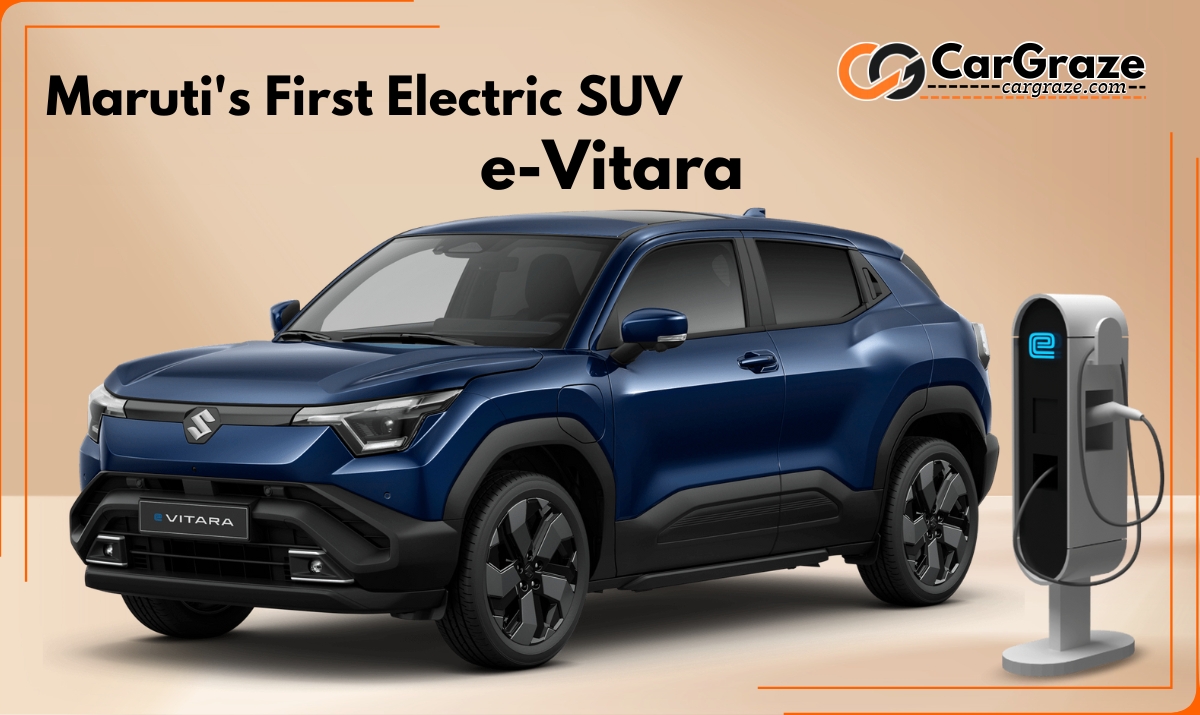
Maruti Suzuki's Entry into the EV Market: Everything You Need to Know
Maruti Suzuki, India’s largest automobile manufacturer, remained absent from the electric vehicle (EV) segment for years. But that’s about to change. Maruti has always prioritized mass-market readiness before launching any new technology, and now they are gearing up to enter the EV space. Let’s dive into what we know about their new EV lineup, battery technology, and performance.
Introducing Maruti Suzuki’s First Electric Car
At the Bharat Mobility Expo 2023, Maruti showcased their much-anticipated electric SUV, rumoured to be called the E Vitara. The official launch is expected at the Bharat Mobility Expo 2025. So, what makes this EV special? Maruti is focusing on a unique battery technology to cater to Indian driving conditions and environmental concerns.
Lithium Iron Phosphate (LFP) Batteries: A Game Changer for Maruti?
Unlike most EVs that use lithium-ion batteries, Maruti’s electric car will feature Lithium Iron Phosphate (LFP) batteries. Here’s why this matters:
- Safety and Stability: LFP batteries are more stable than lithium-ion ones, significantly reducing the risk of overheating or fire. This makes them ideal for Indian weather conditions.
- Longevity: These batteries last longer, with a lifespan of up to 10 years.
- Environmentally Friendly: LFP batteries don’t use cobalt, making them a more sustainable choice.
However, there’s a trade-off. LFP batteries store less energy compared to lithium-ion batteries, meaning they require more space to deliver similar performance.
Range and Performance
Maruti’s electric SUV will be available in two battery variants:
- 49 kWh Battery: Offers a real-world range of 350-400 km.
- 61 kWh Battery: Delivers a range of 450-500 km.
These range estimates consider the vehicle’s weight and size, making them practical for everyday use.
On the performance side:
- The 49 kWh variant offers 142 BHP and 189 Nm of torque in two-wheel drive.
- The 61 kWh variant delivers 172 BHP and 189 Nm of torque.
- Opting for the all-wheel-drive (AWD) version boosts torque to 300 Nm, ensuring a thrilling driving experience.
While the two-wheel-drive versions prioritize range, the AWD models pack more punch, offering better handling and faster acceleration.
Features to Look Out For
Maruti’s electric SUV is expected to come loaded with advanced features to compete in the EV market. Confirmed features include:
- 360° Camera: Enhances parking and manoeuvring ease.
- Front Parking Sensors: Adds convenience and safety.
- ADAS (Advanced Driver Assistance Systems): Ensures better driving safety with features like lane-keeping assist and adaptive cruise control.
- Panoramic Sunroof: Adds a premium touch to the interior.
- Digital Instrument Cluster: A modern and intuitive interface for the driver.
How Does It Compare?
This electric SUV will compete with other players in the Indian EV market, such as the Tata Nexon EV and Mahindra XUV400. While the pricing is not confirmed, experts estimate it to fall in the ₹18-25 lakh range. If Maruti delivers all these features at a competitive price, it could disrupt the market.
Why Choose Maruti’s Electric Car?
Maruti’s upcoming electric SUV ticks all the right boxes: safety, range, performance, and eco-friendliness. The decision to use LFP batteries highlights their focus on longevity and safety. Add to that Maruti’s extensive service network, and you have an EV designed to cater to the masses.
What’s Next?
The EV market in India is heating up, and Maruti’s entry is bound to raise the stakes. Whether you’re looking for an EV for daily commutes or road trips, this new entrant promises to deliver.
What are your thoughts on Maruti Suzuki’s first electric car? Will it revolutionize the Indian EV market? Let us know in the comments below! Stay tuned for more updates.



Comments